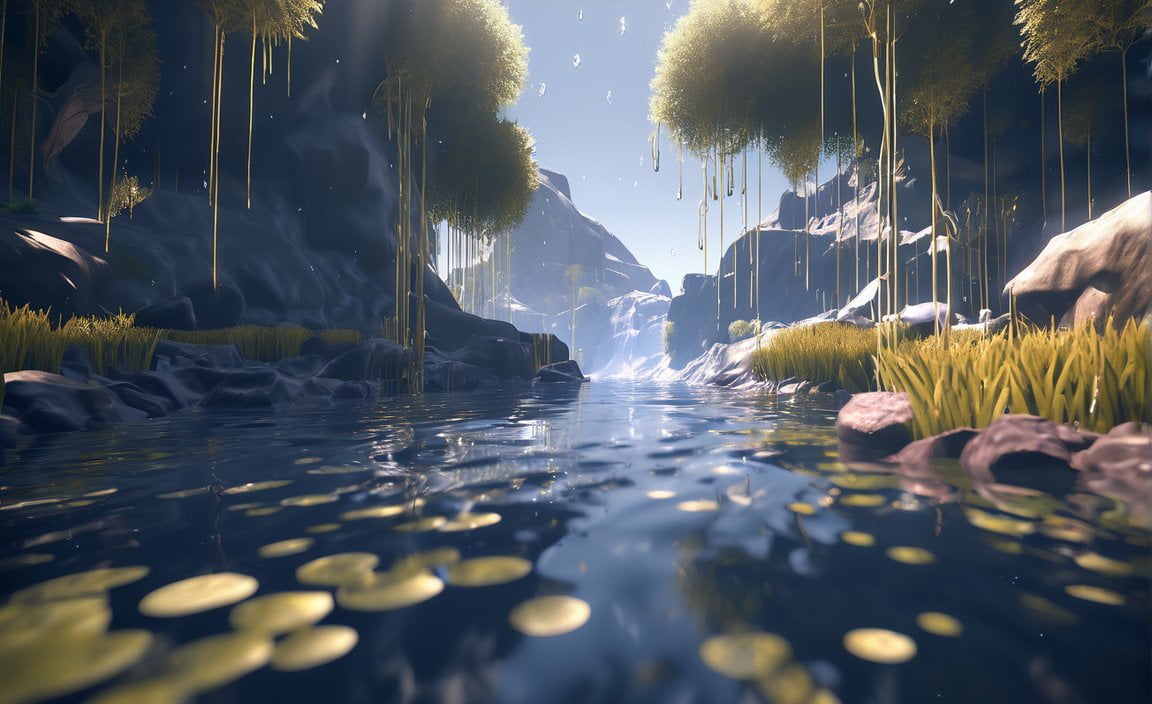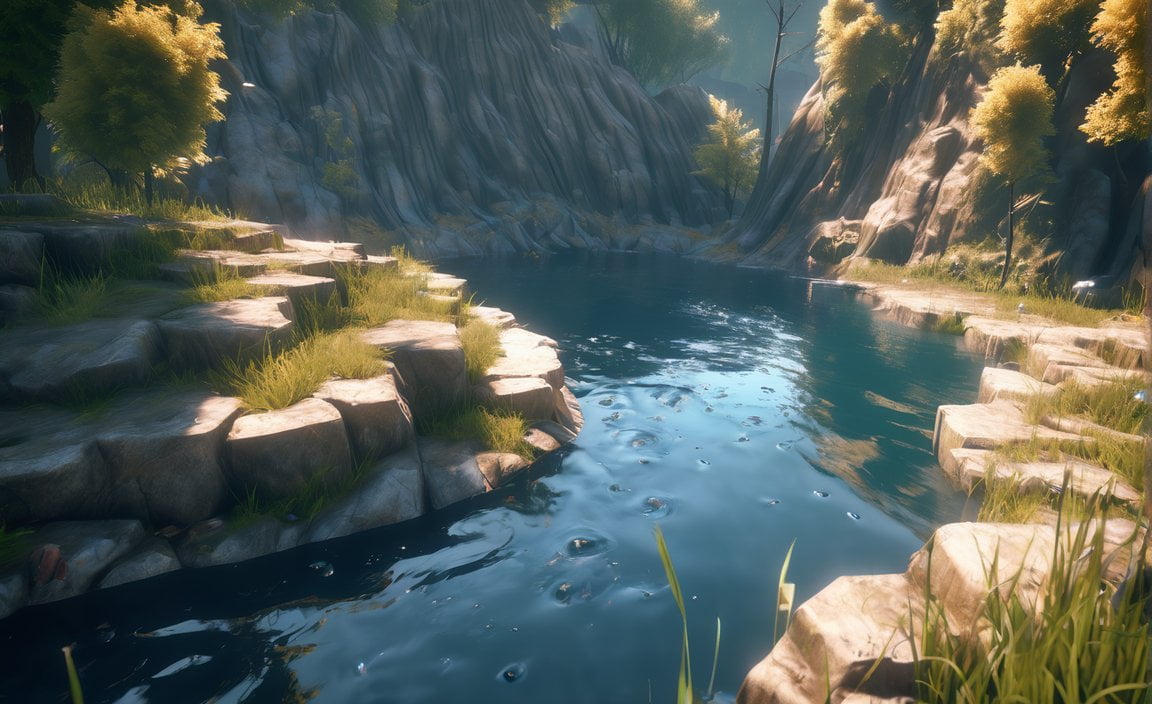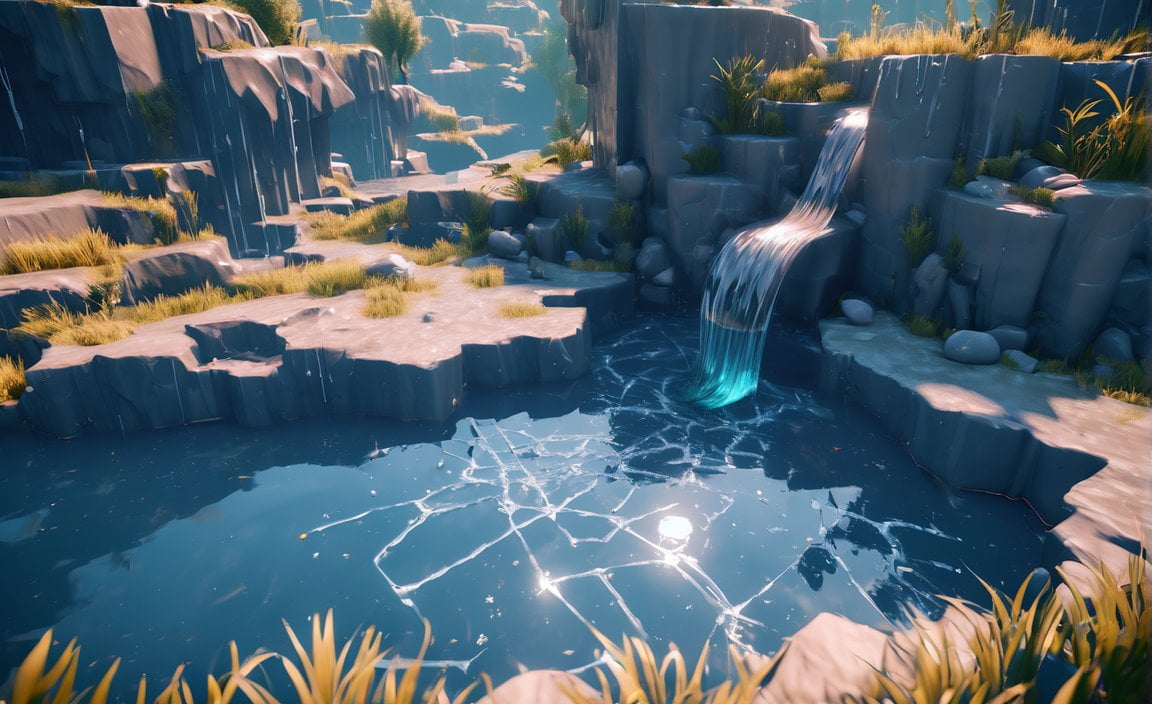Preserving Earth’s Water: 3 Reasons to Conserve
Water, the life-sustaining elixir that covers more than two-thirds of our planet, is a scarcer resource than most people think. As the global population continues to rise, so does the demand for water, leading to increased stress on already limited supplies. Moreover, the process of treating and distributing water consumes significant energy, contributing to greenhouse gas emissions. Additionally, water plays a vital role in feeding the world, with agriculture heavily reliant on its availability. Lastly, responsible water use is crucial for maintaining healthy ecosystems and biodiversity. In this article, we will delve into these crucial reasons why wasting water is not an option in today’s world.
Key Takeaways:
– Water scarcity: Wasting water contributes to the increasing scarcity of this finite resource.
– Necessity for life: Water is essential for the survival and well-being of all living beings, including plants, animals, and humans.
– Value of other commodities: Water is extensively used in agriculture, industry, and energy production, so conserving water reduces strain on these sectors.
– Cost-reducing measure: Saving water can lower water bills and reduce the need for costly infrastructure investments.
– Recreational purposes: Conserving water ensures its availability for activities like swimming, fishing, and boating.
– Water quality improvement: Wasting water can lead to pollution and contamination, so conserving and preventing pollution maintains water quality for human consumption and ecosystems.
– Reuse and recycling potential: Advancements in resource recovery systems allow for the efficient use of wastewater, maximizing its potential.
3 Reasons Why We Should Not Waste Water

Water is a precious resource that sustains and nourishes all life on Earth. It is crucial that we use this resource responsibly and avoid wasting it. Here are three compelling reasons why we should conserve water:
1. Water scarcity:
Only a small fraction of the Earth’s water is fresh and accessible for human use. Wasting water exacerbates the already existing problem of water scarcity. By conserving water, we ensure that there is enough for everyone, both now and in the future. Water scarcity can lead to conflicts and hardships, affecting communities and ecosystems alike.
2. Ecosystem preservation:
Water is not just essential for human survival; it plays a vital role in supporting diverse ecosystems around the world. Wasting water disrupts the delicate balance of these ecosystems, affecting plants, animals, and aquatic life. Conserving water helps maintain the health and integrity of these ecosystems, ensuring their long-term sustainability.
3. Preserving energy and reducing carbon footprint:
Water is not just valuable in itself; it also contributes to various other sectors like agriculture, industry, and energy production. Wasting water puts unnecessary strain on these sectors and increases energy consumption. By conserving water, we reduce the need for energy-intensive water extraction, treatment, and transportation processes, thereby lowering our carbon footprint.
Water conservation is a collective responsibility that requires individual, community, and government actions. Here are some steps we can all take to conserve water:
- Fix leaking pipes and faucets promptly to prevent water wastage.
- Install water-saving devices such as low-flow showerheads and toilets.
- Opt for drought-tolerant plants in landscaping to reduce the need for excessive watering.
- Practice responsible irrigation techniques, such as watering plants during cooler parts of the day.
- Be mindful of daily water usage habits, such as turning off the faucet while brushing teeth or washing dishes.
In addition to conserving water, it is essential to promote awareness about the importance of water conservation and advocate for sustainable water management policies at the local, regional, and global levels.
By taking steps to limit water waste, we can protect our invaluable water resources, safeguard ecosystems, and ensure a sustainable future for generations to come. Let’s remember that every drop counts in our collective efforts to preserve Earth’s water.
Check out these 3 ways to keep water clean that will make a significant impact in your home! Learn more here.
Discover 5 easy ways to save water and contribute to a greener future! Find out how here.
Reason #3: Water feeds the world

Water is more than just a thirst quencher. It plays a vital role in ensuring the food security of our planet. Let’s explore why Reason #3: Water feeds the world is a compelling reason to conserve this precious resource.
Supporting Sustainable Agriculture
Water is essential for agriculture, the foundation of our food production system. Irrigation accounts for a significant portion of water usage worldwide, with nearly 70% of freshwater withdrawals dedicated to farming. By conserving water, we can ensure its availability for sustainable food production. Efficient water management techniques, such as drip irrigation and precision farming, allow farmers to optimize water usage without compromising crop yields.
Meeting Growing Global Demand
As the global population continues to grow, so does the demand for food. By conserving water, we can bridge the gap between water supply and demand in agriculture. Efficient water use not only helps to meet the needs of today’s population but also ensures that future generations have access to healthy and nutritious food. Responsible water management practices can help prevent food shortages and alleviate hunger in vulnerable communities.
Promoting Water-Efficient Farming Practices
Water scarcity is becoming a looming threat in many regions around the world. To address this challenge, farmers need to adopt water-efficient farming practices that maximize crop yields while minimizing water usage. By investing in technologies and techniques that reduce water waste, such as soil moisture sensors, precision application of fertilizers, and drought-tolerant crop varieties, we can optimize water use and create a more sustainable agricultural system.
Key Takeaways:
- Water plays a crucial role in ensuring food security and meeting the growing global demand for food.
- Conserving water in agriculture is vital for sustainable food production and preventing food shortages.
- Water-efficient farming practices, such as precision irrigation and drought-tolerant crops, can optimize water use.
- Investing in technology and innovation for water-efficient agriculture is essential for a sustainable future.
Sources:
– Green Planet Plumbing: 10 Reasons Why We Should Not Waste Water
– DROP: Why We Should Be More Concerned About Wasting Water
Reason #4: Healthy Ecosystems Depend on Responsible Water Use
Water is not only essential for human existence, but it also plays a critical role in maintaining the delicate balance of our planet’s ecosystems. The responsible use of water is vital to preserve the health and sustainability of these ecosystems. Here are three key reasons why we should prioritize responsible water use for the benefit of our ecosystems:
1. Mitigating Climate Change and Water Cycles
Water Ecosystems Support Life on Earth
Freshwater ecosystems, such as lakes, rivers, and wetlands, are home to a diverse range of species and play a crucial role in supporting life on Earth. These ecosystems act as natural filters, purifying water and providing habitats for countless plant and animal species. Additionally, they contribute to the regulation of climate patterns and water cycles.
Responsible Water Use Maintains Natural Balance
When we waste water, we disrupt the natural balance of ecosystems. Excessive water consumption can lead to the depletion of water bodies, thereby threatening the survival of aquatic species and the delicate ecological balance they rely on. By using water responsibly, we ensure the availability of water for these ecosystems, enabling them to continue performing their vital functions.
2. Protecting Biodiversity and Ecosystem Services
Thriving Ecosystems Support Biodiversity
Ecosystems are intricately interconnected, and any disruption to one can have a domino effect on others. By conserving water, we help maintain the health and integrity of ecosystems, which, in turn, supports biodiversity. Biodiversity is essential for a resilient and sustainable planet, as it contributes to the provision of crucial ecosystem services, such as pollination, natural pest control, and nutrient cycling.
Ecosystem Services Benefit Humans
The services provided by ecosystems directly benefit human well-being. Responsible water use ensures the continued provision of these services, such as the purification of water, regulation of the climate, and prevention of floods and droughts. Conserving water allows ecosystems to maintain their ability to mitigate the impacts of climate change, safeguard water resources, and provide essential resources for human communities.
3. Preserving Natural Beauty and Recreation Opportunities
Water-Based Recreation Relies on Healthy Ecosystems
Responsible water use is crucial for preserving the natural beauty of bodies of water, such as lakes, rivers, and oceans. These pristine environments provide endless recreational opportunities, such as swimming, fishing, and boating. By using water responsibly, we ensure the continued availability of these activities for ourselves and future generations.
Conservation Enhances Nature’s Aesthetic Value
Water ecosystems are magnificent natural wonders, showcasing breathtaking landscapes, diverse wildlife, and vibrant ecosystems. By conserving water, we protect these ecosystems and preserve their aesthetic value. Responsible water use contributes to the overall beauty of our environment and allows us to continue enjoying the wonders of nature.
Key Takeaways:
- Responsible water use is crucial for maintaining the health and sustainability of ecosystems.
- Water ecosystems support life on Earth, regulate climate patterns, and water cycles.
- Conservation helps protect biodiversity and supports essential ecosystem services.
- Preserving water ensures the availability of recreational opportunities and enhances nature’s aesthetic value.
Sources:
– DropConnect – Why We Should Be More Concerned About Wasting Water
– UN-Water – Water and Ecosystems
FAQ
Q1: Why is water considered a scarcer resource than most people think?
A1: Water is actually a scarce resource because only a small fraction of the Earth’s water is fresh and accessible, with the majority locked in glaciers and ice caps. Understanding its scarcity helps emphasize the need for responsible water use and conservation efforts.
Q2: How does water treatment consume significant energy?
A2: Water treatment requires a substantial amount of energy for the purification and distribution processes. By conserving water, we can reduce energy consumption in water treatment, leading to decreased greenhouse gas emissions and a more sustainable resource management approach.
Q3: How does wasting water affect food production?
A3: Approximately 40% of the world’s food production relies on fresh water for irrigation. Wasting water can have a detrimental impact on food production as it depletes the available resources necessary for sustaining agriculture. Conserving water is crucial to ensure the continuous supply of freshwater for irrigation and maintain sustainable food production.
Q4: Why is responsible water use important for healthy ecosystems?
A4: Maintaining a healthy natural balance in ecosystems is essential for their overall well-being and the well-being of all living beings. Healthy ecosystems help regulate climate and water cycles, supporting life on Earth. By using water responsibly, we can minimize disruptions to these ecosystems and protect their vital functions.
Q5: How does wasting water lead to financial losses?
A5: Wasting water not only has environmental consequences but also has financial implications. Conserving water can help individuals, businesses, and governments save on water bills and reduce the need for costly infrastructure maintenance and repairs. It is beneficial for both personal finances and the overall economy.
- China II Review: Delicious Food & Speedy Service - April 17, 2025
- Understand Virginia’s Flag: History & Debate - April 17, 2025
- Explore Long Island’s Map: Unique Regions & Insights - April 17, 2025
















